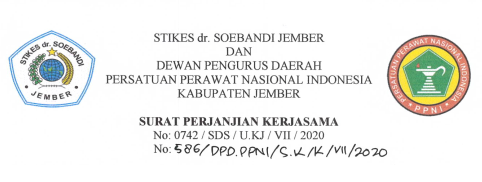Analysis Factors Of Affecting Community Stigma With Covid-19 Patient Based On Health Belief Model Theory
DOI:
https://doi.org/10.36858/jkds.v9i2.277Abstract
Introduction: The stigma that exists in society views people with COVID-19 as people who are avoided, the feared disease is very contagious so that stigma causes anxiety and prejudice against sufferers. Objective : To analyze the factors that influence the stigma of society in patients with COVID-19 based on the Health Belief Model (HBM) theory. Methods: Descriptive correlation using a cross-sectional approach. The research sample was 150 respondents with accidental sampling design. The independent variables of this study were knowledge, beliefs and perceptions of threat. The dependent variable was stigma. Data were collected using a questionnaire. Data analysis used multiple regression statistical test with a significance degree of <0.05 (5%). Results: knowledge does not have a significant effect on beliefs (vulnerabilities, advantages, barriers, self-confidence with > 0.05. Knowledge variable has an effect on seriousness > 0.037. Confidence also does not have a significant effect on the threat of vulnerability (1,000), seriousness > 0.999, advantage > 1,000, barriers > 1,000 and belief has an effect on self-confidence > 0.000. For the threat variable does not have a significant effect on stigma > 0.996. Conclusion: The stigma against Covid-19 patients is the perception of seriousness and the perception of threats to Covid-19 patients who are felt to threaten the community to be infected with the virus. Lack of information is a trigger for the stigma of society towards Covid-19 patients.







